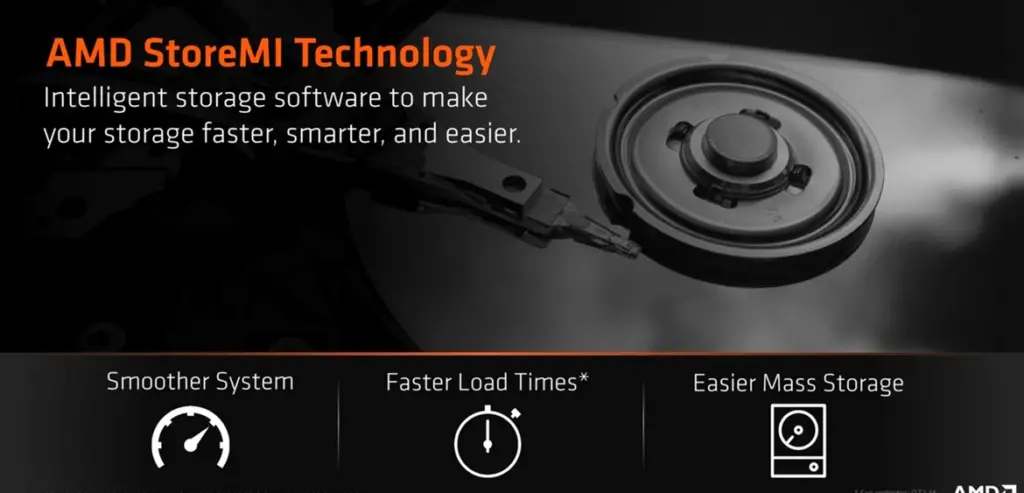AMD introduces Ryzen 2nd Gen up for pre-order
Ahead of its April 19th release, AMD is now offering pre-orders for their 2nd Generation, Ryzen 2000 family. Note that the full release is still set for the 19th when review sites will also be able to unveil their benchmarks. AMD has stated that the new models should all be available for pre-order effective today from over 150 retailers and manufacturers.
Models
If you have been following some of the recent leaks, this should be very familiar as they were all genuine. The current lineup is small but much more streamline – two high-end Ryzen 7 SKUs with eight cores and sixteen threads, and two mid-range Ryzen 5 SKUs, with six cores and twelve threads.
| 2nd Generation AMD Ryzen | ||||||
|---|---|---|---|---|---|---|
| Model | C/T | Base | Max Turbo | L3 | TDP | Price |
| Ryzen 7 2700X | 8/16 | 3,700 MHz | 4,300 MHz | 16 MiB | 105 W | $329 |
| Ryzen 7 2700 | 8/16 | 3,200 MHz | 4,100 MHz | 16 MiB | 65 W | $299 |
| Ryzen 5 2600X | 6/12 | 3,600 MHz | 4,200 MHz | 16 MiB | 95 W | $229 |
| Ryzen 5 2600 | 6/12 | 3,400 MHz | 3,900 MHz | 16 MiB | 65 W | $199 |

The obvious question that you might have is where is the “Ryzen 7 2800X” to succeed the 1800X? The answer to that is quite simple: there is no 2800X – at least not for the initial release. The reason is even simpler, the 2700X can comfortably replace it in terms of performance (though the full info will come on the 19th). One could also speculate that AMD is currently trying to build up the stock of their top 5% dies in order to possibly release an even higher clock 2800X in the future. But at least for now, there isn’t one.
All new models are based on the enhanced Zen+ microarchitecture fabricated on GlobalFoundries 12 nm process, an enhanced version of their 14 nm process, providing a slight performance boost for identical designs. This has manifested itself in the form of a modest clock frequency bump over the prior generation.
The overall design is largely identical to prior generation and the overall system architecture remains the same with two CCXs with four cores each and 8 MiB of L3 cache per CCX for a total of eight cores and 16 MiB of cache per Zeppelin. Note that AMD advertises those parts as having 20 MiB of cache and that includes the 512 KiB of L2 per core as well as the L3 (16 MiB L3 + 4 MiB L2). With Zen+ comes a modest memory data rate bump with all models supporting up to 64 GiB of dual-channel DDR4-2933 memory – up from the 2666 MT/s in the prior generation.
400-Series Chipset
 While the new models are being introduced with an X470 chipset, they are all backward compatible with the X370 chipset given the BIOS has updated appropriately.
While the new models are being introduced with an X470 chipset, they are all backward compatible with the X370 chipset given the BIOS has updated appropriately.
A specific advantage of using the new X470 chipset is AMD’s StoreMI technology which attempts to combine the benefits of fast, but expensive, SSDs along with cheap high-capacity, but slow, HDDs. Much of the functionality is very similar to Intel’s Smart Response Technology. StoreMI combines the two storage devices into a single virtual drive and automatically manages and moves the data across the drives. Essentially, the chipset uses the SSD as a cache for traditional hard drives. The idea is to keep the most recent and most accessed data on the SSD in order to improve real-world responsiveness while keeping the less used data in the slower mechanical hard disk in order to preserve the capacity of the SSD. It’s worth noting that this hierarchy of secondary storage devices can actually extend to main memory. Up to 2 GiB of RAM may be configured and reserved as another level of cache for the HDD on top of the SSD. All in all, this is an interesting feature and one that attempts to directly compete with Intel’s Optane memory solution.
| X470 Chipset (Enthusiast) | ||||||
|---|---|---|---|---|---|---|
| PCIe | USB | SATA/NVMe | RAID | OC | ||
| 3.1G2 | 3.1G1 | 2.0 | ||||
| 1×16, 2×8 | 2 | 10 | 6 | 6 + x2 NVMe, 4 + 4x NVMe | 0,1,10 | Unlocked |

The full details will be available on April 19th along with the full launch.
–
Spotted an error? Help us fix it! Simply select the problematic text and press Ctrl+Enter to notify us.
–
